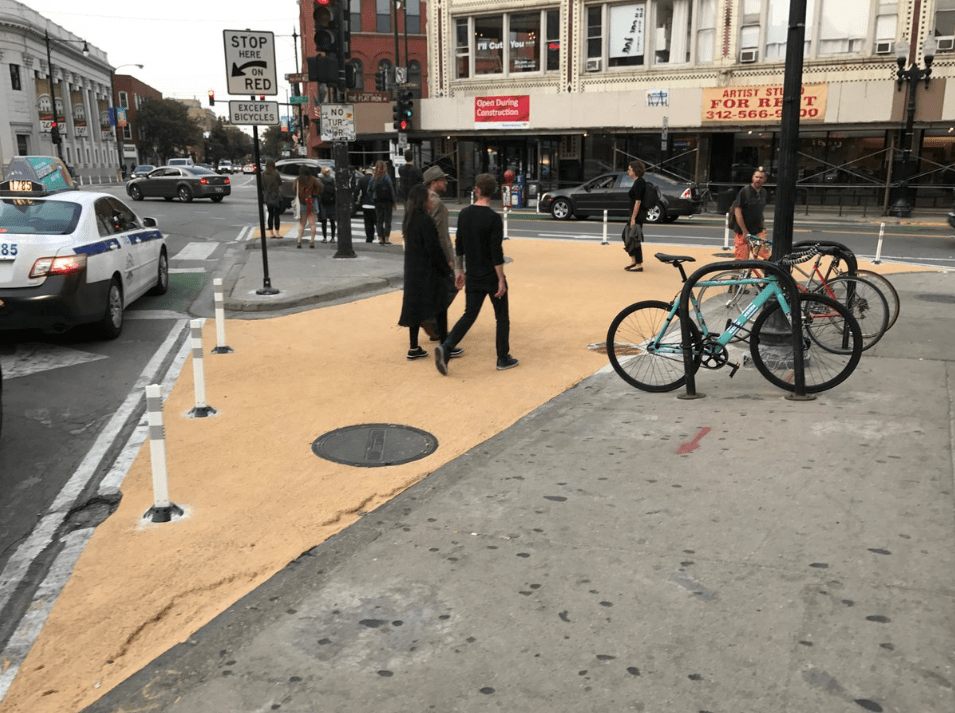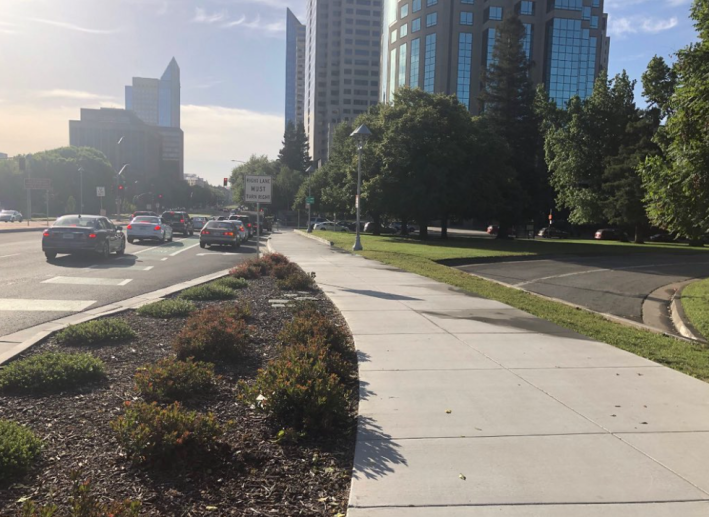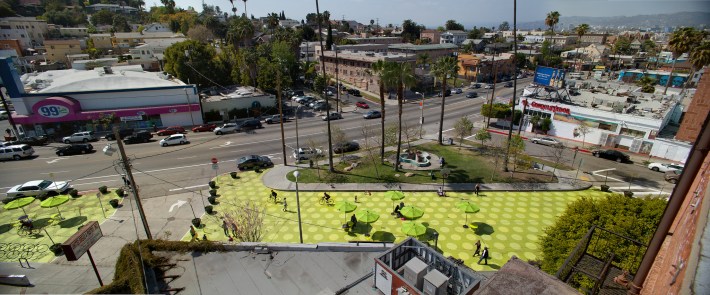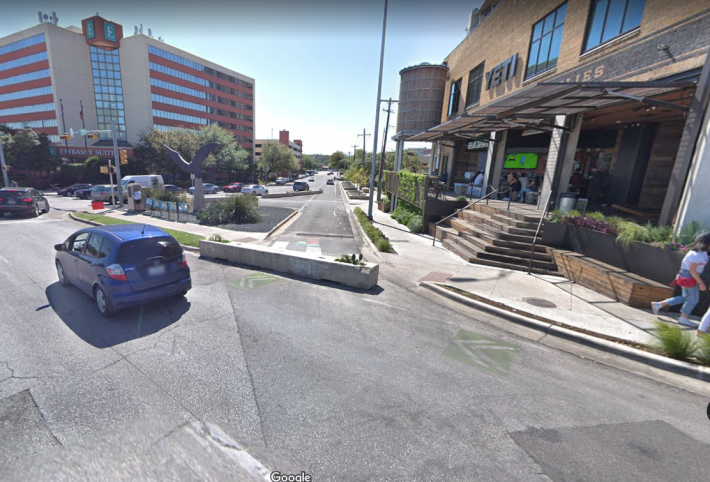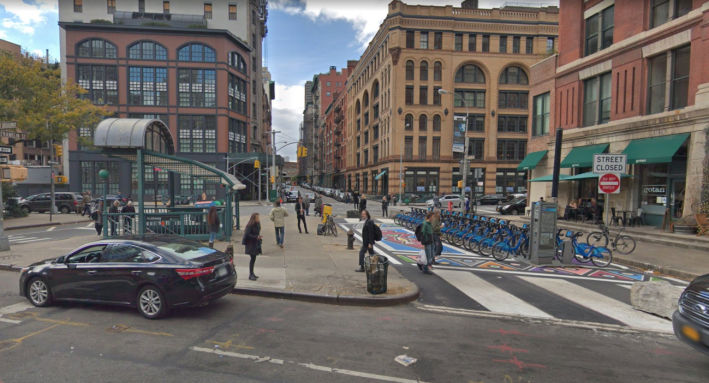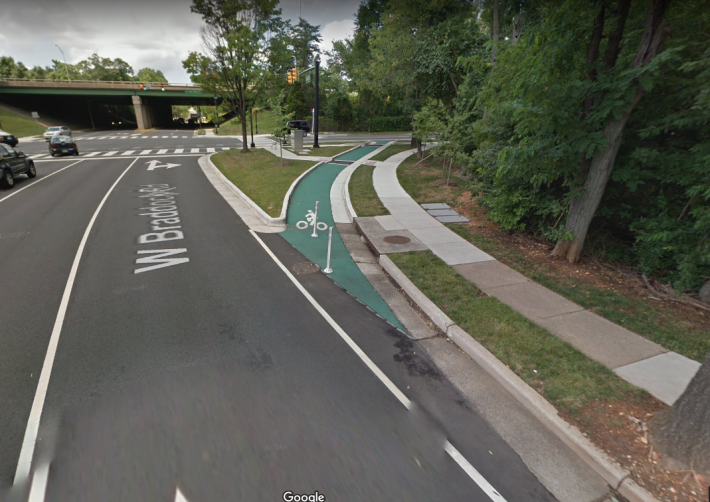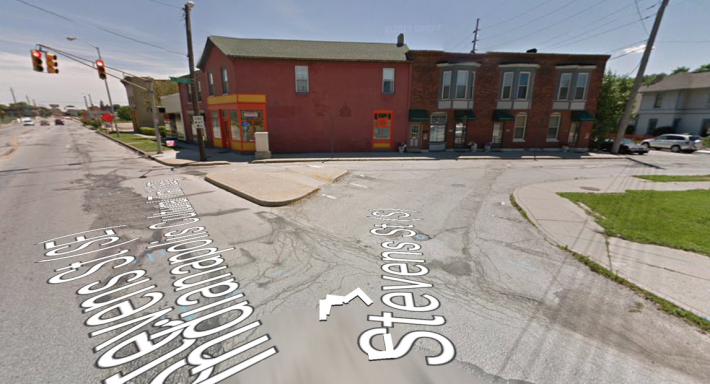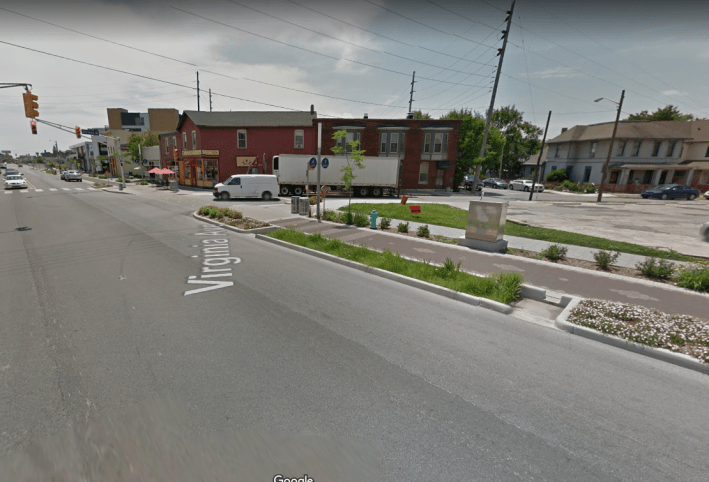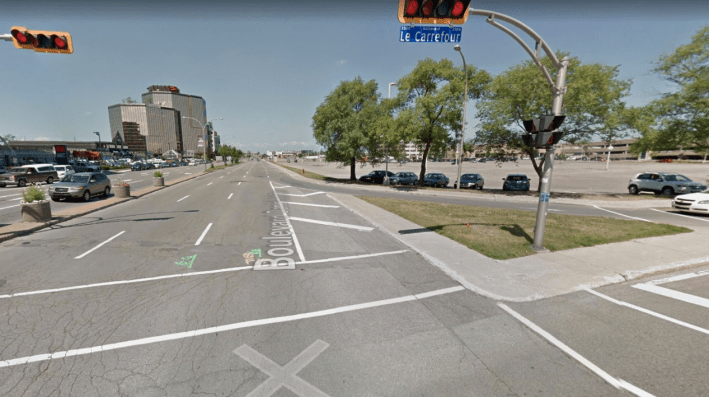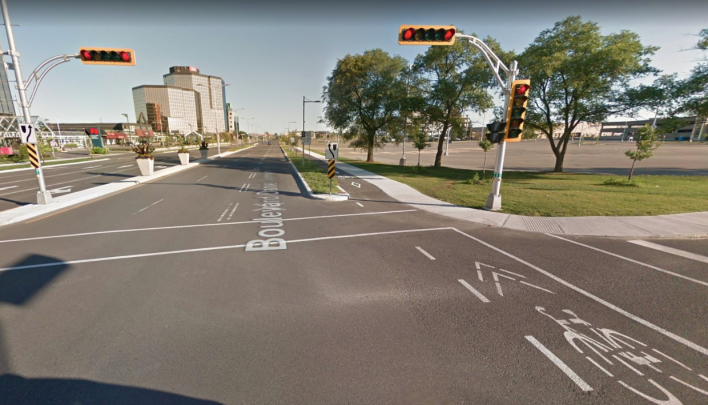When you come across a short segment of asphalt that carves up the sidewalk so drivers can take turns faster -- that's a slip lane, and it's very dangerous for pedestrians. Slip lanes don't belong in cities.
Since slip lanes serve no purpose except to shave a few seconds off car trips, they're easy to convert to pedestrian space. And many cities are doing just that. Inspired by this photo of a slip lane removal from Streetsblog Chicago's John Greenfield, we asked readers to send in photos of slip lane conversion projects from their cities, and we got submissions from across the country.
Here's a look at what people sent us.
23rd and South, Philadelphia
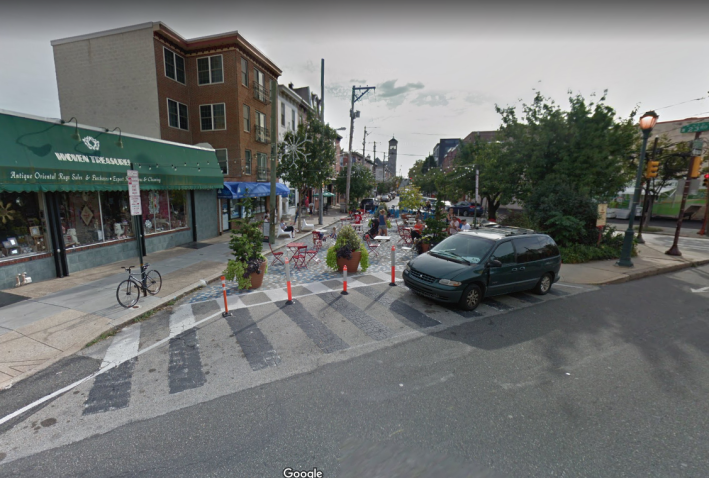
This plaza in Philly is made out of temporary materials but has been in place for several years. The city intends to build out a permanent version, Plan Philly reports, that will provide more shade.
Capitol Mall, Sacramento
You can see where the asphalt has been filled in to create a nice continuous sidewalk and a landscaped buffer. Thanks to Paul Supawanich for bringing it to our attention.
Silver Lake Triangle Plaza, Los Angeles
LADOT's "People Street" program dramatically changed this short block using just planters and paint (via Carter Rubin).
Olive and Denny Way, Seattle
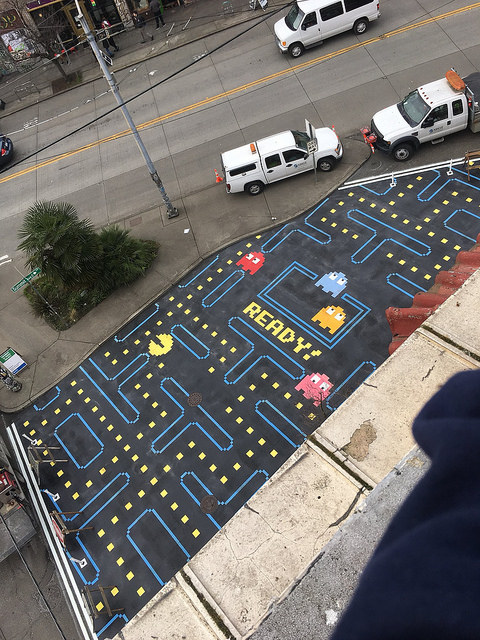
Maybe the nation's most famous slip lane conversion is in Seattle's Capitol Hill neighborhood. The city asked residents to help redesign the space and the Pac Man concept won.
Congress and Barton Springs, Austin
The city of Austin is currently testing out a public plaza at this location with temporary materials. The plan is to build out a permanent project if public feedback is positive following the one-year pilot.
Franklin Street, New York
What used to be a driving shortcut is now a bike-share station with a street mural from NYC DOT's Urban Art program. The city placed big rocks on both ends keep drivers out. Cheap, simple, quick, lovely.
Braddock Road, Alexandria, Virginia
Cyclists can still use this slip lane but motorists cannot. Now about the rest of this road...
Stevens Street and Virginia Avenue, Indianapolis
This slip lane was converted as part of the Indianapolis Cultural Trail project, showing once again how bike infrastructure can make streets safer for pedestrians as well.
Boulevard Daniel-Johnson, Laval, Quebec (outside Montreal)
This submission from Bartek Komorowski illustrates how slip lane conversions can make a big difference in a more suburban setting.
